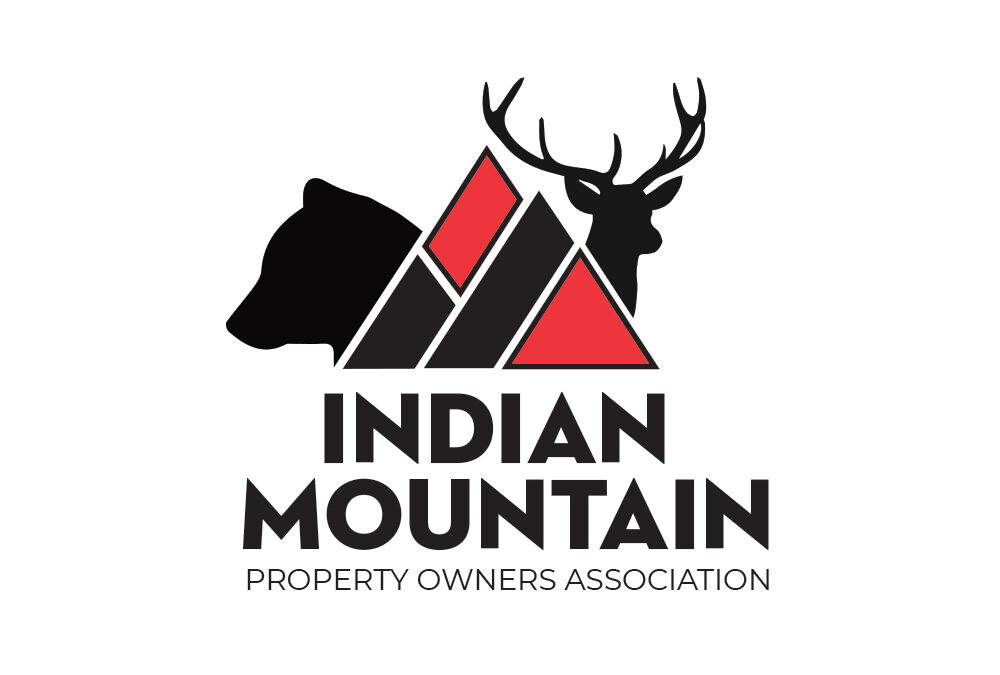Many Indian Mountain owners use their property as their own special place to camp. Tents, trailers,
motor homes – all can be found in IM during the summer months. The covenants of Indian Mountain
have always contained restrictions on camping. Although the covenant language varied slightly
depending on where (which filing) a property was located, the basic requirement was clear: owners
were allowed to camp on their undeveloped lots for up to 90 days but not for more than 30 consecutive
days. The reason for the covenant restriction is reflected in the old newsletters, i.e., the protection of
property values.
motor homes – all can be found in IM during the summer months. The covenants of Indian Mountain
have always contained restrictions on camping. Although the covenant language varied slightly
depending on where (which filing) a property was located, the basic requirement was clear: owners
were allowed to camp on their undeveloped lots for up to 90 days but not for more than 30 consecutive
days. The reason for the covenant restriction is reflected in the old newsletters, i.e., the protection of
property values.
It has been a tradition in IM for more than 30 years that recreation vehicles and campers are to be
removed from undeveloped lots for the winter. Since the mid 2000’s IMPOA has asked that all campers
be removed from lots by November 1 to encourage compliance with the intent of the covenants.
Property owners can either take their equipment home until spring or store it in the fenced lot provided
by the Indian Mountain Metropolitan District (IMMD) near the former Sportsmen’s Ranch and prairie
golf course. For information about the storage lot, please see www.indianmountain.info.
removed from undeveloped lots for the winter. Since the mid 2000’s IMPOA has asked that all campers
be removed from lots by November 1 to encourage compliance with the intent of the covenants.
Property owners can either take their equipment home until spring or store it in the fenced lot provided
by the Indian Mountain Metropolitan District (IMMD) near the former Sportsmen’s Ranch and prairie
golf course. For information about the storage lot, please see www.indianmountain.info.
Park County also has regulations regarding camping that have evolved over the years. In the 1980s,
owners had to have permits from Park County to camp on their lots in Indian Mountain. Camping was
only permitted from May 1 to September 15, by which time all campers were to be removed. The
permits were $35 a year and could only be renewed for seven years. Violators could be fined or even
jailed. It must have been assumed that owners would either build a cabin by the end of seven years or
otherwise tire of camping. In the 1990s, the county regulations changed so that permits were no longer
required but camping equipment was still to be removed from undeveloped residential lots anywhere in
the county by September 15.
owners had to have permits from Park County to camp on their lots in Indian Mountain. Camping was
only permitted from May 1 to September 15, by which time all campers were to be removed. The
permits were $35 a year and could only be renewed for seven years. Violators could be fined or even
jailed. It must have been assumed that owners would either build a cabin by the end of seven years or
otherwise tire of camping. In the 1990s, the county regulations changed so that permits were no longer
required but camping equipment was still to be removed from undeveloped residential lots anywhere in
the county by September 15.
The Park County Land Use Regulations (LUR) related to camping on undeveloped lots were updated
again in May 2016. These regulations replace all earlier county regulations and supersede the IM
covenants as well. If there is a permitted dwelling on the lot, these regulations are not applicable. Key
elements of the regulations include:
again in May 2016. These regulations replace all earlier county regulations and supersede the IM
covenants as well. If there is a permitted dwelling on the lot, these regulations are not applicable. Key
elements of the regulations include:
- Owners are allowed to camp on their own property for up to 14 days per year without a permit.
- A free 30 day permit issued by the County is required for longer stays. The permit has requirements directed toward public health, safety and maintaining property values. The permit requires that there be a plan for sanitation, trash removal, driveway access and address signage among other things.
- An additional 30 day permit can be issued if there is a permitted on-site wastewater disposal system (septic system).
The full Land Use Regulation requirements and permit application are posted on the Park County
website at: http://www.parkco.us/183/Planning-Zoning
website at: http://www.parkco.us/183/Planning-Zoning
The LUR sections related to camping are:
Article IV, Section 4-200 Definitions. (see Pg. 5)
Article V, Section 5-712 – Camping on Vacant Residential (MR, R, R-20, R-35) and Mining (M) Parcels.
Article IV, Section 4-200 Definitions. (see Pg. 5)
Article V, Section 5-712 – Camping on Vacant Residential (MR, R, R-20, R-35) and Mining (M) Parcels.
For RV & Camper Safety Tips please click here.

